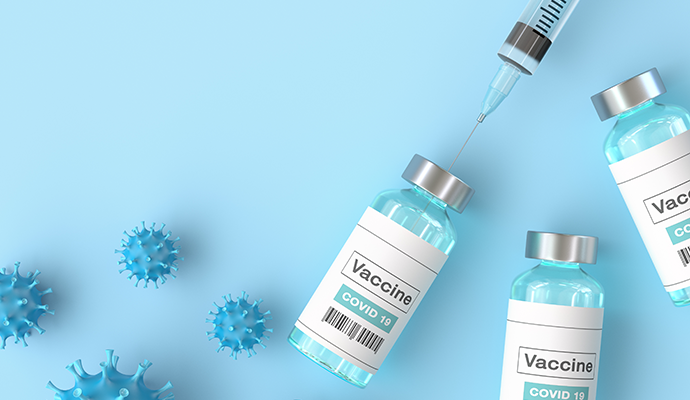How Do Payers Cover COVID-19 Vaccines, Treatments, and Tests Post-PHE?
Public and private payers generally offer some coverage of COVID-19 vaccines, treatments, and tests, but cost-sharing requirements vary.

Source: Getty Images
- After the public health emergency (PHE) ended, many federal regulations that facilitated access to COVID-19 vaccines, treatments, and tests expired. While some policies may still apply, coverage differs for people with Medicare, Medicaid or the Children’s Health Insurance Program (CHIP), private coverage, and no insurance, a KFF brief detailed.
Medicare
Post-PHE, Medicare COVID-19 covers vaccines and boosters for traditional Medicare and Medicare Advantage beneficiaries free of cost under Medicare Part B. The public payer determines payment rates and allowances for providers based on 95 percent of the average wholesale price and reimburses providers for the vaccine and the administration.
COVID-19 oral antiviral treatments have started to transition to the commercial market. The federal government will provide federally procured Paxlovid for free to Medicare beneficiaries through the end of 2024, either through Part D plans or a standalone patient assistance program run by the manufacturer.
After 2024, Paxlovid will only be covered for Medicare beneficiaries in Part D plans with potential cost-sharing. Similarly, other oral antivirals are covered by Part D, with cost-sharing possible. Once the supply of antivirals entirely moves to the commercial market, Part D plans will pay for the cost and administration of the drugs.
Traditional Medicare covers clinical diagnostic testing at no cost under Part B, but beneficiaries will face cost-sharing for testing-related services and must pay the total cost of at-home tests. Cost-sharing for clinical diagnostic testing in Medicare Advantage varies by plan. Some plans may cover the costs of at-home COVID-19 tests through an over-the-counter benefit.
Medicaid/CHIP
READ MORE: HHS Patient Assistance Program Aims To Boost Access to COVID-19 Drug
The American Rescue Plan Act (ARPA) and the Inflation Reduction Act require Medicaid and CHIP programs to cover all ACIP-recommended vaccines with no cost-sharing, including COVID-19 vaccines and boosters, even after the PHE.
States receive 100 percent federal matching payments for vaccine administration until September 30, 2024. Then, state costs will be matched at the state’s regular federal matching percentage (FMAP) and enhanced FMAP for CHIP.
Additionally, the Vaccines for Children Program (VFC) provides free vaccines for kids on Medicaid. VFC-registered providers can bill Medicaid for administration costs. For other Medicaid and CHIP beneficiaries, states will pay providers for the vaccine plus an administration fee, which will be matched at the state’s regular and enhanced FMAPs.
ARPA provisions require Medicaid and CHIP to cover all drugs and biological products for COVID-19 treatment with no cost-sharing until September 30, 2024. The federal government will provide federally procured Paxlovid for free to beneficiaries through the end of 2024.
After this coverage period ends, Medicaid and CHIP will cover FDA-approved treatments, but beneficiaries may face cost-sharing requirements and utilization limits. Coverage will vary by state for treatments under emergency use authorization.
READ MORE: End of COVID-19 Policies Will Influence National Healthcare Spending
These programs must also cover COVID-19 testing and testing-related services, including at-home tests, until September 30, 2024. After this date, states will cover testing as a mandatory laboratory service if the test is ordered by a physician and provided in an office or similar facility.
Medicaid coverage for tests without a physician’s order could vary by state, with some states potentially imposing cost-sharing for tests and testing-related services.
Commercial plans
The majority of private health plan members do not have to pay out-of-pocket for COVID-19 vaccines and boosters. However, there may be exceptions with out-of-network care and grandfathered plans since federally funded purchased vaccines are no longer available. Under the Affordable Care Act, plans must cover the out-of-network administration if an enrollee in a non-grandfathered plan cannot access a vaccine at an in-network provider.
Even during the PHE, no law facilitated access to COVID-19 treatment for private plan members. They often face cost-sharing for COVID-19 hospitalizations and oral antivirals. Paxlovid’s manufacturer will operate a copay assistance program for commercially insured members through 2028.
Most members face cost-sharing for COVID-19 tests. A test generally costs $45, and members typically pay at least some portion of it out-of-pocket and may face cost-sharing for the physician visit. Private payers do not have to cover at-home COVID-19 tests.
Uninsured individuals
READ MORE: Public-Private Program Boosts Uninsured Access to COVID-19 Vaccines
Uninsured children have access to free COVID-19 vaccines through the VFC program, but uninsured adults do not have guaranteed access to free vaccines. The Biden Administration established the Bridge Access Program to provide access to vaccines at local pharmacies, through existing public health infrastructure, and local health centers. The vaccines are purchased for uninsured adults with federal funds through the CDC’s Section 317 program. The program will run until December 2024.
Uninsured individuals will have free access to Paxlovid through 2024 through a patient assistance program. After that, the manufacturer will offer a similar program through 2028.
Without insurance, individuals usually must pay the total cost of COVID-19 tests and testing-related services. However, local health departments or safety-net providers may offer free or reduced-cost tests. The CDC also has a program that offers no-cost testing for uninsured people with symptoms or those who have been exposed to COVID-19.
